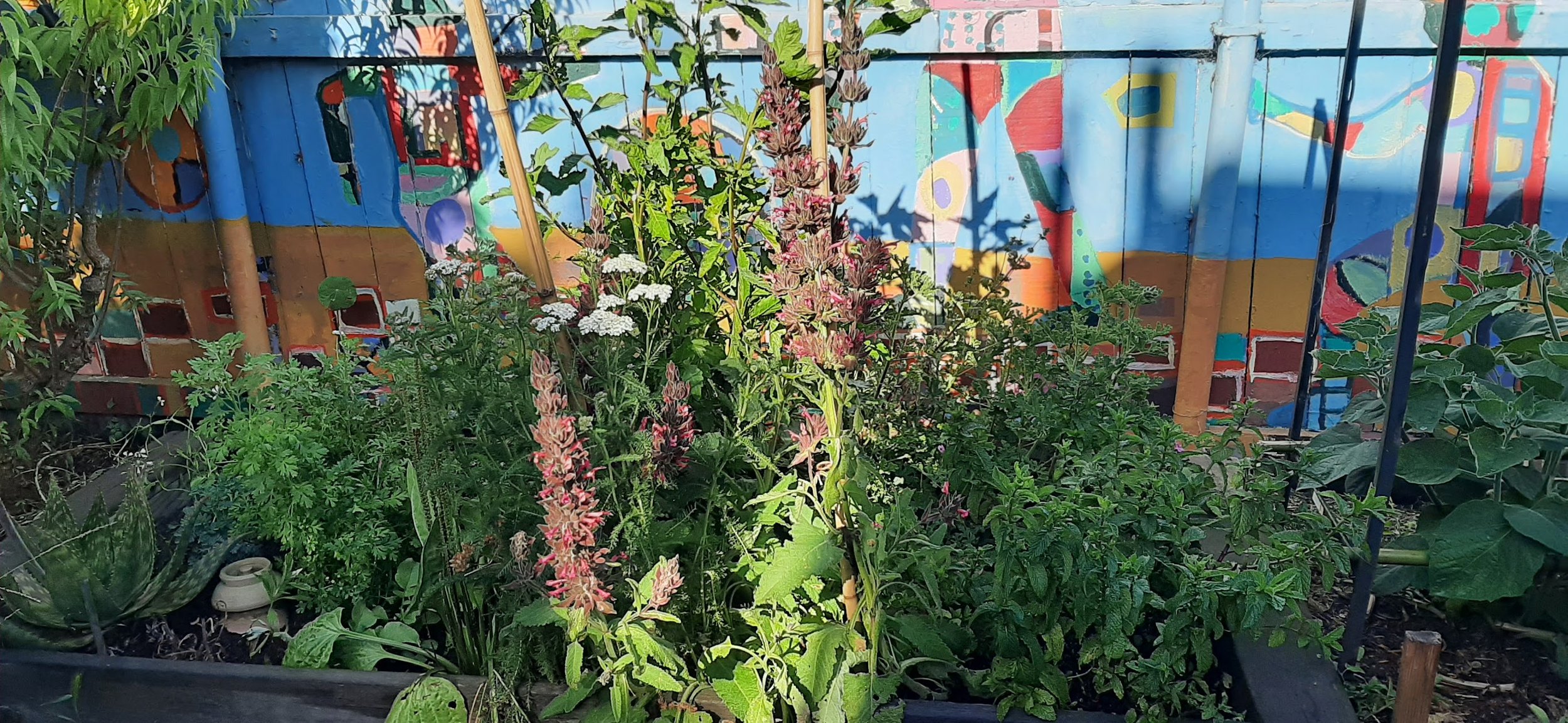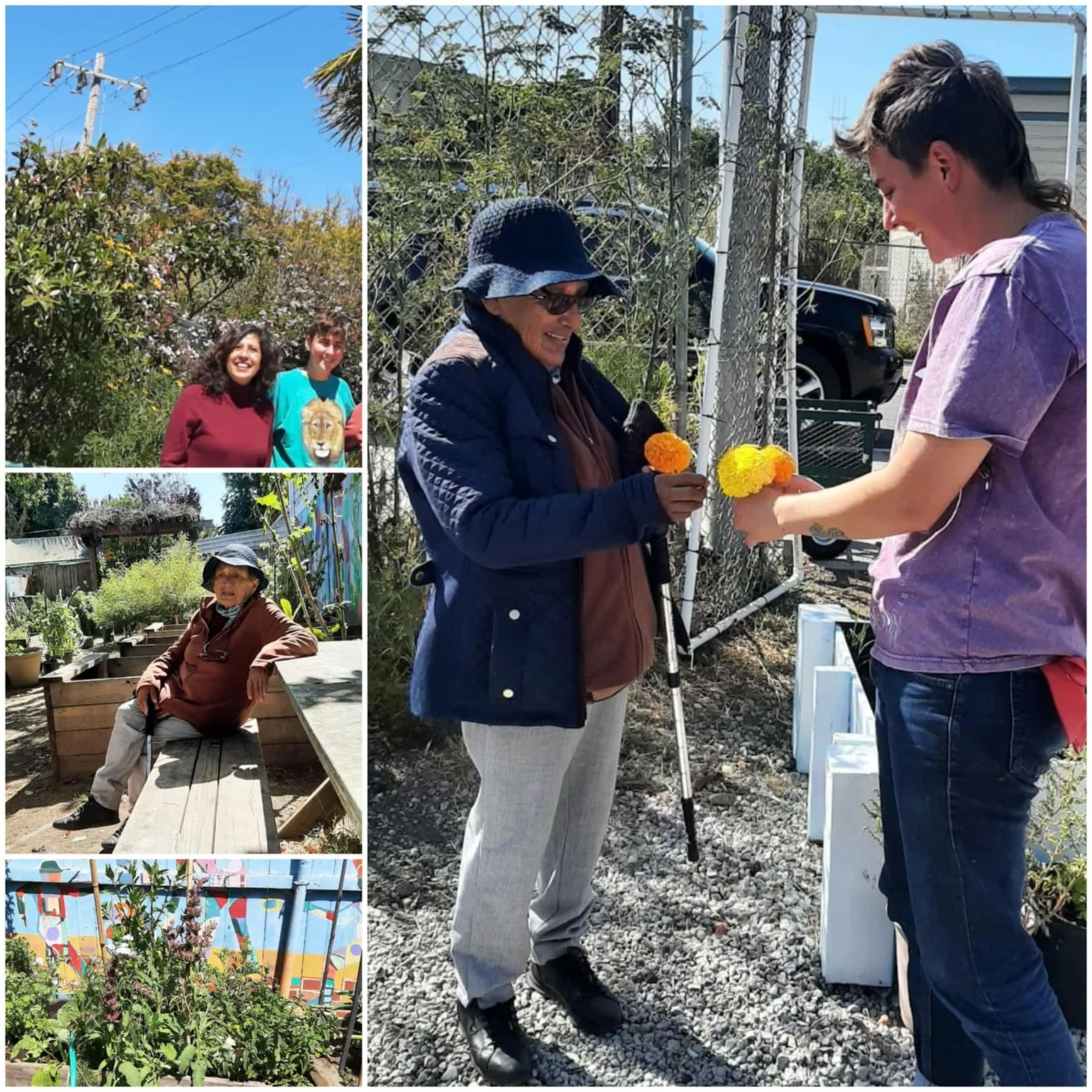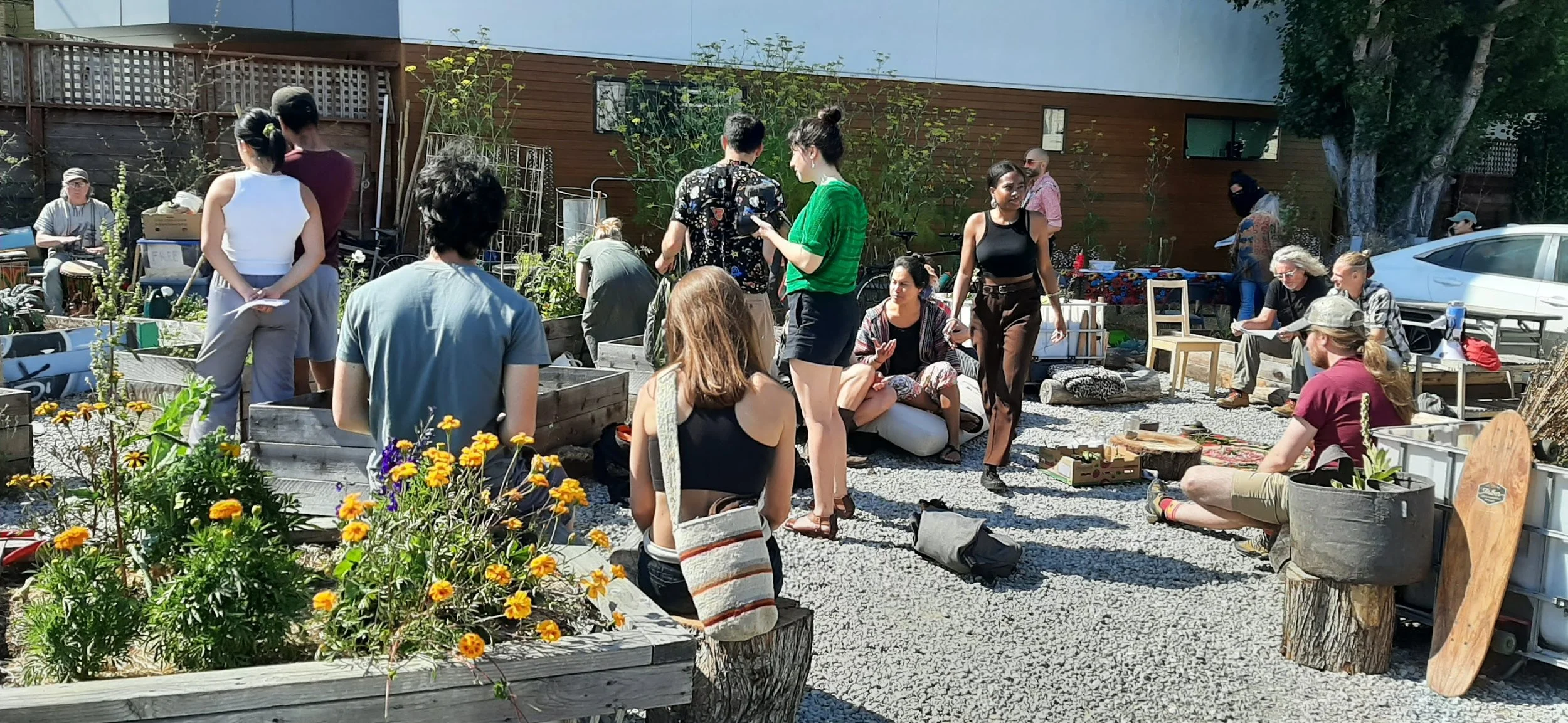
Roots & Wellness for Seniors
Events: Coffee & Medicare
Walking groups &Garden Days
BENEFITS OF COMMUNITY GARDENING
Therapeutic Benefits: Gardening, including weeding, lowers stress and enhances mental health. Learning about plants and what they need stimulates the mind and develops new skills.
Cultural Impact: Gardening can change neighborhood culture by encouraging engaging activities.
Environmental Benefits: These gardens support pollinator-friendly plants, aiding bees and other endangered species. They also lower temperatures compared to concrete, offering key environmental benefits.
Quote Source
“It all begins with an idea. Maybe you want to”
Open green spaces enhance life for residents. Our Mushuk Nina Network provides: knowledge, seeds, tools, and organizes planting events. This activity boosts agricultural variety, broadens food choices, and strengthens community ties in a disconnected world!
These gardens serve as outdoor learning environments for children and youth from Latino and low-income communities in the Mission District.
Healing and Learning through Community Agroecology:
Outdoor Education: Provides direct contact with nature, using parks and open spaces as learning environments and social spaces for reconnection.
Play-Based Teaching: Employs play as a methodology for active environmental education.
Cultural Identity: Fosters a community where learning in Spanish supports cultural identity.
Mitigating Technology Overuse: Addresses issues related to excessive screen time, stress, anxiety, depression, isolation, and violence in schools.

Six Gardens are part of this Network
Secret Garden, People’s way, Tree Garden, Chan Ka Haal Garden, People’s Garden, and Pathos’ garden
Some of these gardens are located on former abandoned lots, parking areas, and even old dumps.
We named our network of community gardens Mushuk Nina, which means "New Fire" in Quichua, a native language from the Andes in South America. This name reflects the spirit of Pawkar Raymi, a celebration that begins in the Andean Mountains during the spring solstice. It is a time to give thanks to Allpa Mama (Mother Earth) and Inti Tayta (Father Sun), as well as Killa Mama (Mother Moon) and all the beings of nature, for allowing us to live in harmony, reciprocity, balance, and complementarity.
IntegrArte SF, the Abya Yala Mission Moms' Committee, and the Feminist Collective of gardeners are working together to address common social issues in the neighborhood and the city such as:
Challenges from Pandemic and School Closures
Our families, particularly children and youth, have encountered severe challenges including:
Learning and Emotional Struggles: Significant setbacks in education and emotional well-being due to the pandemic.
Effects of Isolation and Screen Time: Prolonged isolation and excessive screen time have led to learning loss, deteriorating mental health in teenagers, and impeded social skills development. These issues have been especially acute for our English Language Learners.





